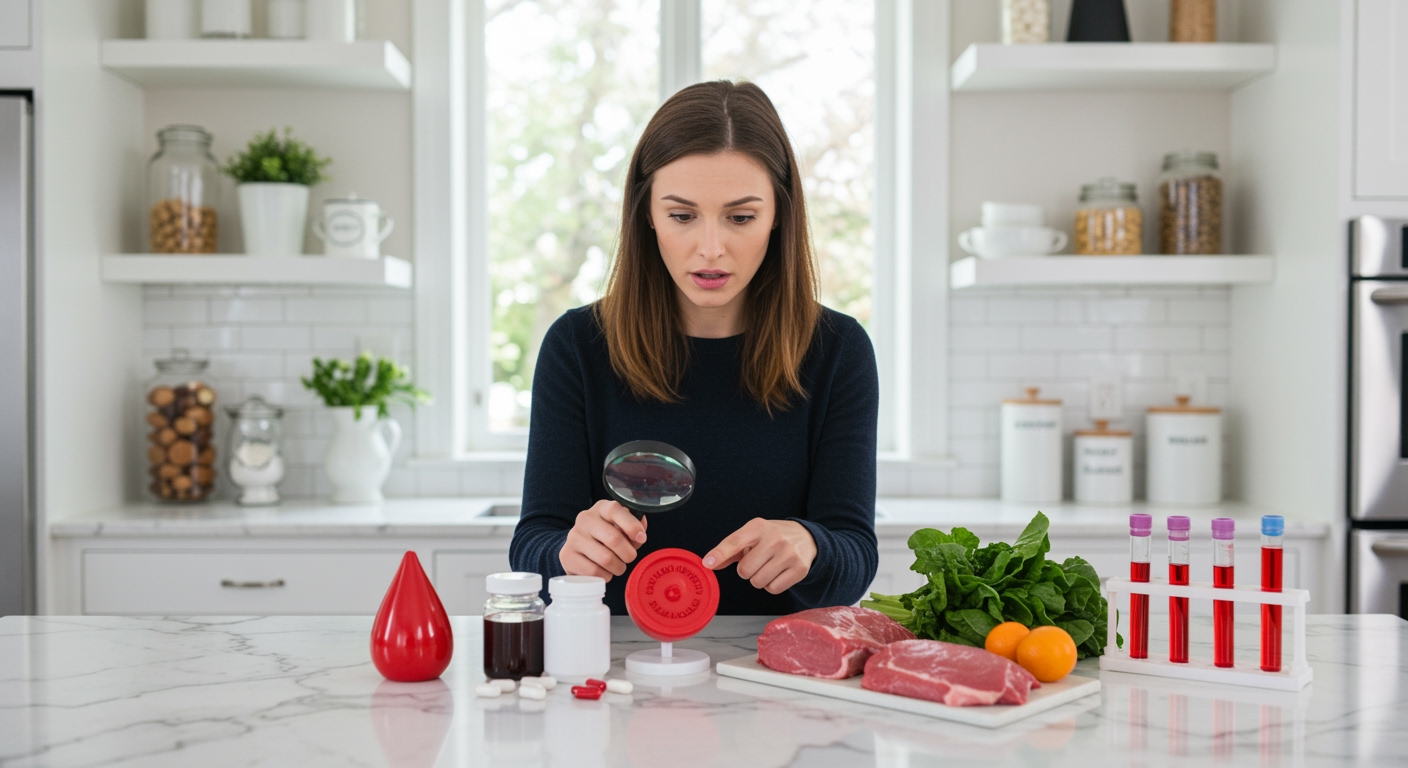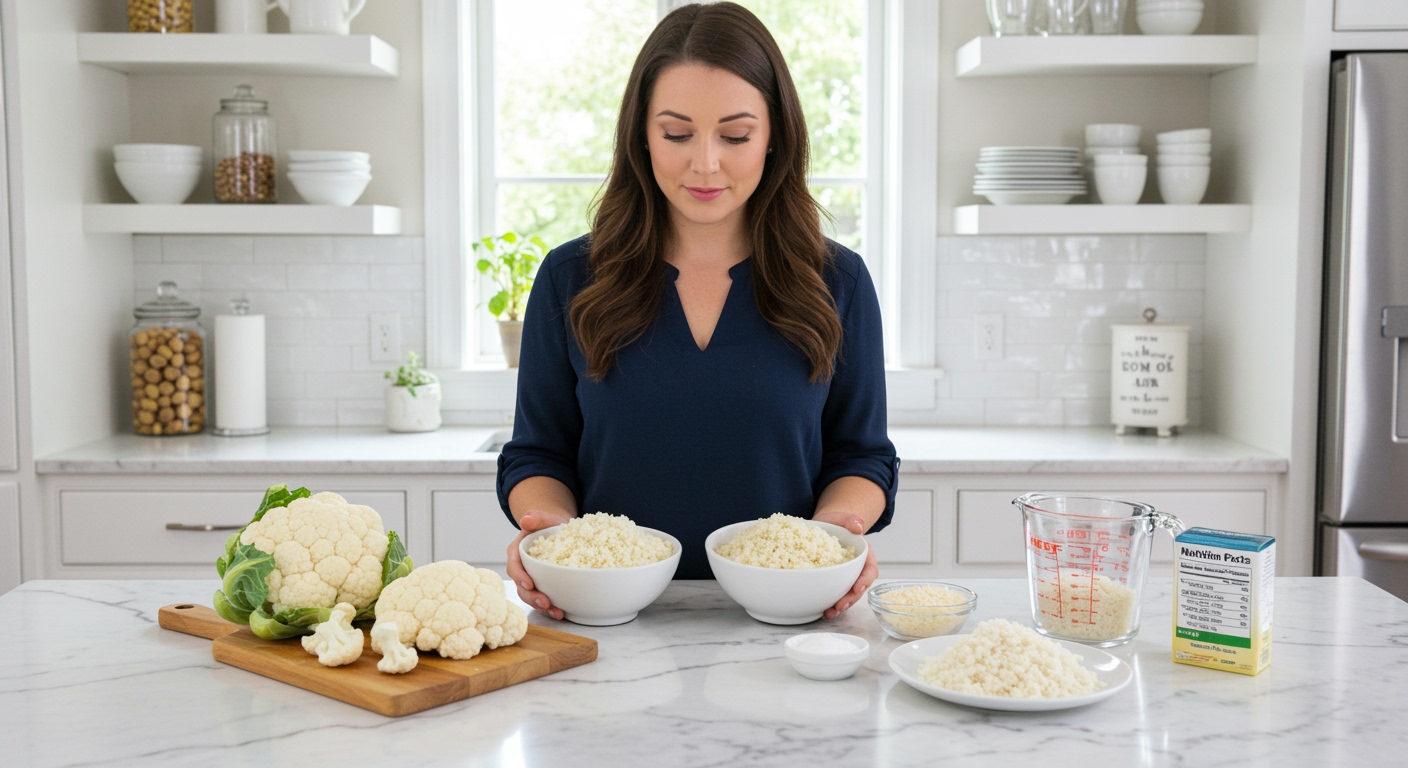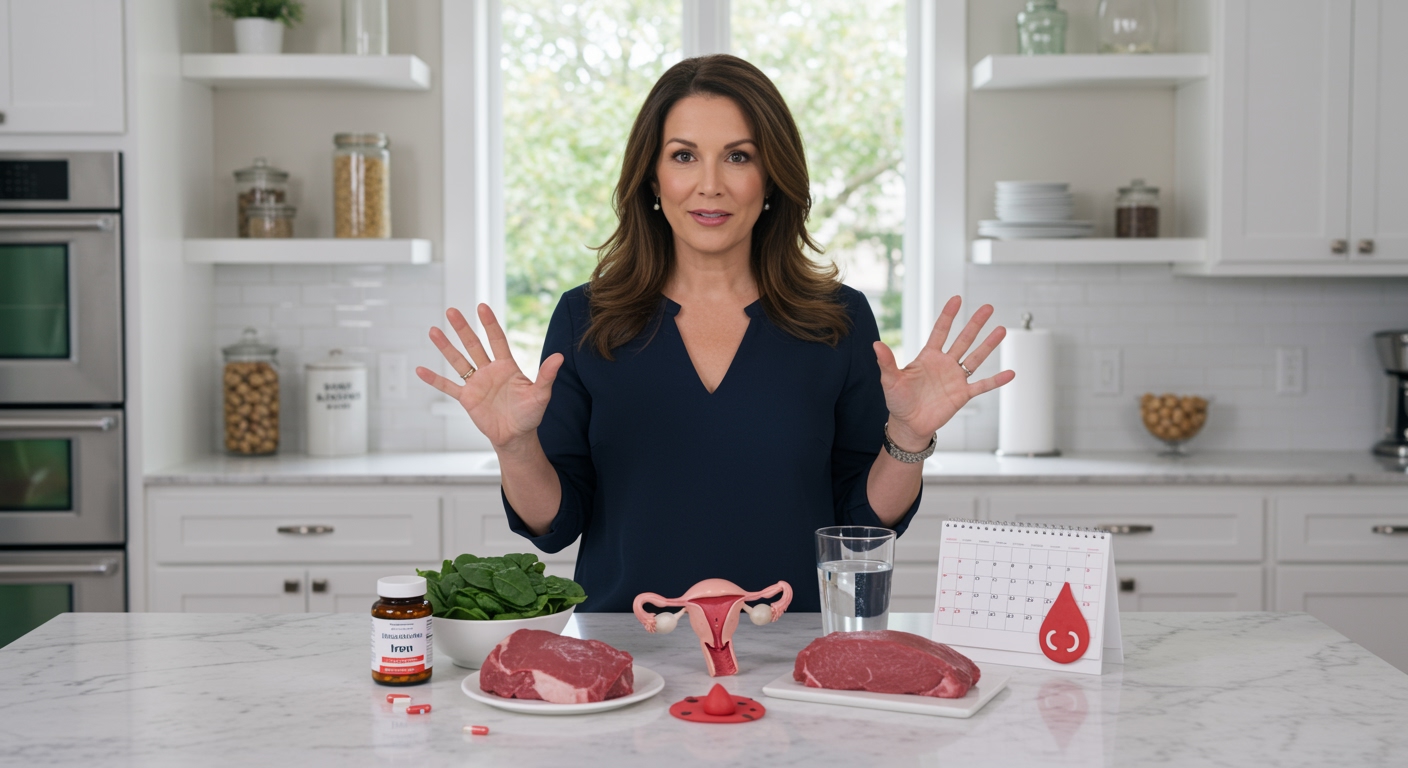✪ Key Takeaway: PCOS can cause iron deficiency anemia through heavy periods, chronic inflammation, and insulin resistance pathways.
Introduction
You feel exhausted all the time, your hair falls out in clumps, and your doctor just told you that your iron levels are dangerously low.
If you have PCOS, you might wonder whether your hormonal condition is secretly draining your iron stores and causing anemia.
Hi, I’m Abdur, your nutrition coach and today I’m going to explain exactly how PCOS creates the perfect storm for iron deficiency and what you can do to protect yourself.
How Does PCOS Lead To Heavy Menstrual Bleeding?
PCOS disrupts your normal ovulation cycle, which throws your entire menstrual pattern into chaos.
When you don’t ovulate regularly, your body fails to produce adequate progesterone, the hormone that helps regulate your menstrual flow.
Without enough progesterone to balance estrogen, your endometrial lining grows thicker than normal throughout your cycle.
This thick lining eventually sheds during menstruation, causing heavy bleeding that can last for weeks instead of days.
Each heavy period forces your body to lose significant amounts of iron through blood loss, gradually depleting your iron stores.
Studies show that women with PCOS lose up to 40% more iron during menstruation compared to women with regular cycles.
✪ Fact: Heavy menstrual bleeding affects up to 70% of women with PCOS, making iron deficiency extremely common in this population.
Can Chronic Inflammation Block Iron Absorption?
PCOS triggers chronic low-grade inflammation throughout your body, which interferes with how your intestines absorb iron from food.
This inflammation increases production of a protein called hepcidin, which acts like a security guard blocking iron from entering your bloodstream.
When hepcidin levels rise, your body cannot absorb iron efficiently from your digestive system, even when you eat iron-rich foods.
The inflammation also prevents your body from releasing stored iron from your liver and other tissues when you need it most.
Research indicates that women with PCOS have hepcidin levels up to 60% higher than healthy women, creating a barrier to iron absorption.
This creates a frustrating cycle where you might eat plenty of iron-rich foods but still develop deficiency because your body cannot use the iron properly.
✪ Pro Tip: Taking vitamin C with iron-rich meals can help overcome some of the absorption barriers caused by chronic inflammation.
Does Insulin Resistance Affect Iron Metabolism?
Insulin resistance, which affects up to 80% of women with PCOS, directly interferes with your body’s ability to manage iron effectively.
High insulin levels increase the production of inflammatory molecules that further boost hepcidin production in your liver.
Insulin resistance also disrupts the normal signaling between your bone marrow and iron storage sites, making it harder for your body to mobilize iron when needed.
The metabolic chaos caused by insulin resistance creates oxidative stress, which damages the proteins responsible for iron transport throughout your body.
Studies reveal that women with both PCOS and insulin resistance have 25% lower iron absorption rates compared to those with PCOS alone.
This explains why some women with PCOS develop iron deficiency even without heavy periods, as their metabolic dysfunction alone can impair iron status.
✪ Note: Improving insulin sensitivity through diet and exercise can help restore normal iron metabolism in women with PCOS.
What Are The Warning Signs Of Iron Deficiency In PCOS?
The early signs of iron deficiency often overlap with PCOS symptoms, making it easy to miss the connection between the two conditions.
Extreme fatigue that doesn’t improve with rest is usually the first sign that your iron levels are dropping dangerously low.
You might notice that your hair becomes thin and brittle, or that you lose more hair than usual when washing or brushing.
Strange cravings for ice, starch, or other non-food items indicate that your body is desperately trying to obtain missing nutrients.
Restless leg syndrome, where your legs feel uncomfortable and you need to move them constantly, often develops as iron stores become depleted.
Your fingernails may become spoon-shaped or develop vertical ridges, while your skin takes on a pale or yellowish appearance.
Blood tests showing ferritin levels below 30 ng/mL or hemoglobin below 12 g/dL confirm that iron deficiency anemia has developed.
✪ Pro Tip: Track your energy levels and menstrual flow patterns to catch iron deficiency early before it progresses to full anemia.
How Can You Prevent Iron Deficiency With PCOS?
Managing PCOS-related iron deficiency requires a multi-pronged approach that addresses both the underlying hormonal issues and iron absorption problems.
Focus on eating heme iron from animal sources like lean red meat, poultry, and fish, as this form absorbs better than plant-based iron.
Combine plant-based iron sources like spinach, lentils, and fortified cereals with vitamin C-rich foods to enhance absorption.
Avoid drinking coffee, tea, or milk with iron-rich meals, as these beverages contain compounds that block iron absorption.
Work with your healthcare provider to regulate your menstrual cycles using hormonal treatments or natural approaches to reduce heavy bleeding.
Consider iron supplementation under medical supervision, especially if your ferritin levels drop below 30 ng/mL.
Address insulin resistance through a low-glycemic diet and regular exercise to improve your body’s ability to use iron effectively.
The Bottom Line
PCOS creates a perfect storm for iron deficiency through heavy menstrual bleeding, chronic inflammation, and insulin resistance that blocks iron absorption.
Your body is not broken, it just needs the right support to overcome these metabolic challenges and maintain healthy iron levels.
I would love to hear about your experience with PCOS and iron deficiency in the comments below, and please share any questions you might have about managing these interconnected conditions.
References
At NutritionCrown, we use quality and credible sources to ensure our content is accurate and trustworthy. Below are the sources referenced in creating this article:





